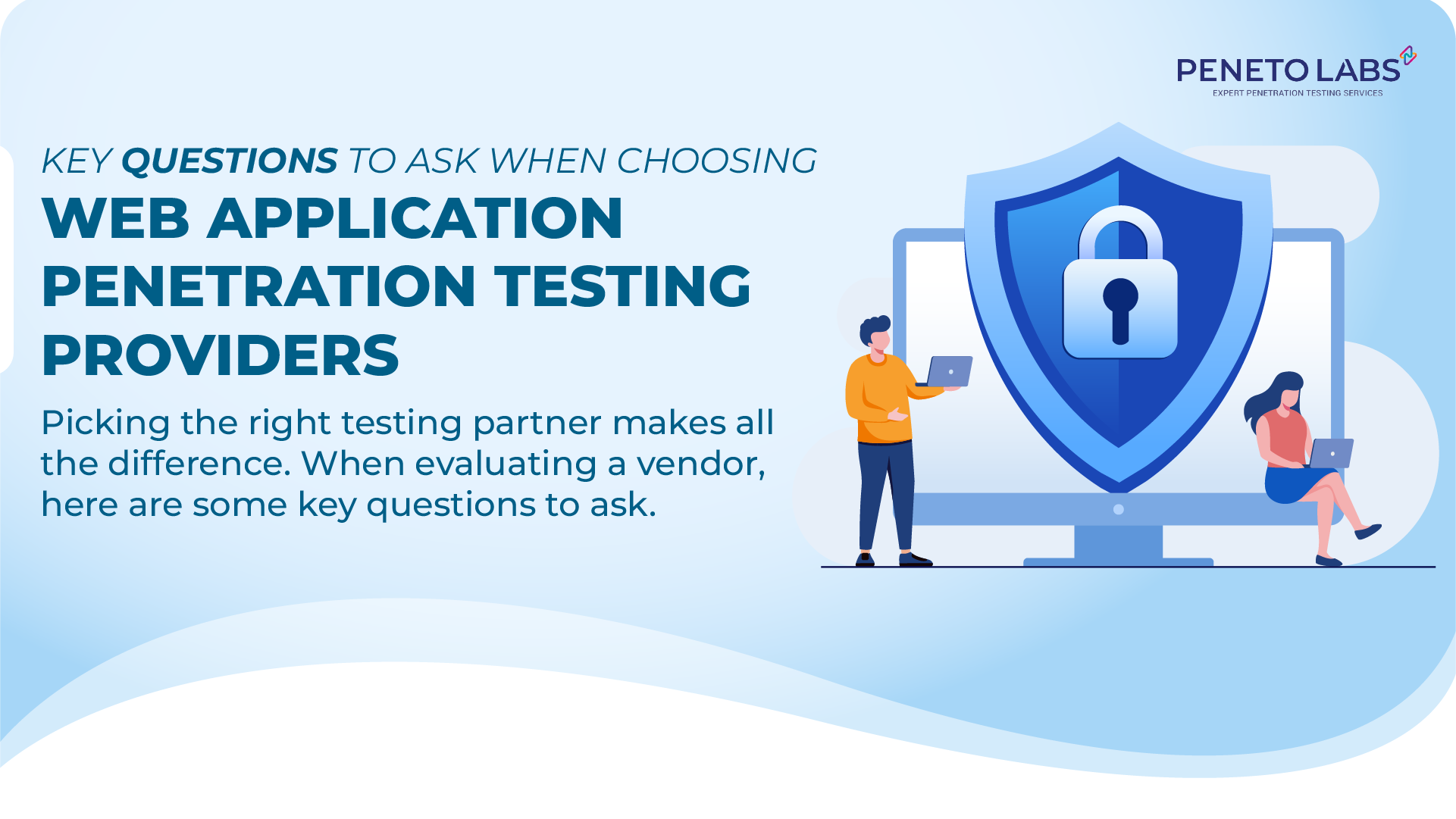Every business today depends on web applications- whether it’s online banking, healthcare platforms, or shopping websites. These apps deal with sensitive data every single day. Hackers, however, are constantly searching for gaps they can exploit. That’s why web application penetration testing has become essential, not optional. Picking the right testing partner makes all the difference. When evaluating a vendor, here are some key questions to ask.
1. What Certifications Do Their Testers Hold?
A good provider must have certified professionals. Look for credentials like OSCP, OSCE, GWAPT, or CEH. These prove the testers can identify complex vulnerabilities. Ask if their team updates skills regularly to match the latest threats.
2. Do They Use Both Manual and Automated Testing?
Automated scanners are useful but limited. Many critical flaws like business logic errors need manual testing. Ask if they combine both methods. This ensures wider coverage and helps identify risks scanners often miss.
3. Can They Customize Testing for Your Application?
Every web application is different. A financial portal is not the same as a healthcare app. Ask if the provider tailors testing based on your sector, architecture, and compliance needs. Avoid vendors who follow a one-size-fits-all approach.
4. How Detailed Are Their Reports?
A report should not just list issues. It must include:
- Risk severity levels
- Business impact explained in simple terms
- Step-by-step remediation guidance
- Screenshots or evidence of vulnerabilities
- Clear, audit-friendly reports save time for your tech and compliance teams.
5. Do They Offer Retesting?
Fixing vulnerabilities is only half the job. You must ensure the fixes actually work. Reliable providers offer free retesting within the audit window. This confirms that security patches are effective.
6. How Fast Can They Deliver Results?
Cybersecurity cannot wait for months. Ask about their turnaround time. Good providers deliver quick but thorough testing with expert analysis. Speed matters, especially when compliance deadlines are near.
7. Are Their Reports Aligned with Compliance Needs?
If you work in regulated sectors like BFSI, healthcare, or government, compliance is key. Ask if their reports align with CERT-In requirements or other sector-specific guidelines. This ensures you stay audit ready.
8. How Do They Collaborate with Your Teams?
Penetration testing is not just about finding flaws. It’s about fixing them. Ask if the vendor works directly with your developers, DevOps, or compliance teams. Smooth collaboration speeds up remediation and strengthens security.
9. What Industries Have They Worked With?
Experience matters. If they have tested banking apps, e-commerce platforms, SaaS products, or healthcare systems, they understand your challenges better. Sector expertise reduces the learning curve and improves results.
10. Can They Simulate Real-World Attack Scenarios?
Attackers don’t follow scripts. They chain exploits and use advanced tactics. A good provider must simulate real-world threats like phishing-based exploits, privilege escalation, and API abuse. This prepares you for actual attacks.
Web Application Penetration Testing by Peneto Labs, a Top Cybersecurity Brand
At Peneto Labs, we go beyond basic scans. Our team of certified experts (OSCP, OSCE, GWAPT, GCIH) combines manual and automated testing to uncover even the most complex vulnerabilities. We provide compliance-ready reports aligned with CERT-In guidelines, free retesting within the audit window, and clear remediation support. Peneto Labs has been empanelled by CERT-In to conduct information security auditing services.
Whether you are a bank, healthcare provider, SaaS platform, or government project, we help you secure your web applications with confidence. With a strong track record and trusted clients across industries, Peneto Labs is your partner for reliable, certified, and effective web application penetration testing.
I hope you found this article useful. Read our other blogs for more information on web application penetration testing.

